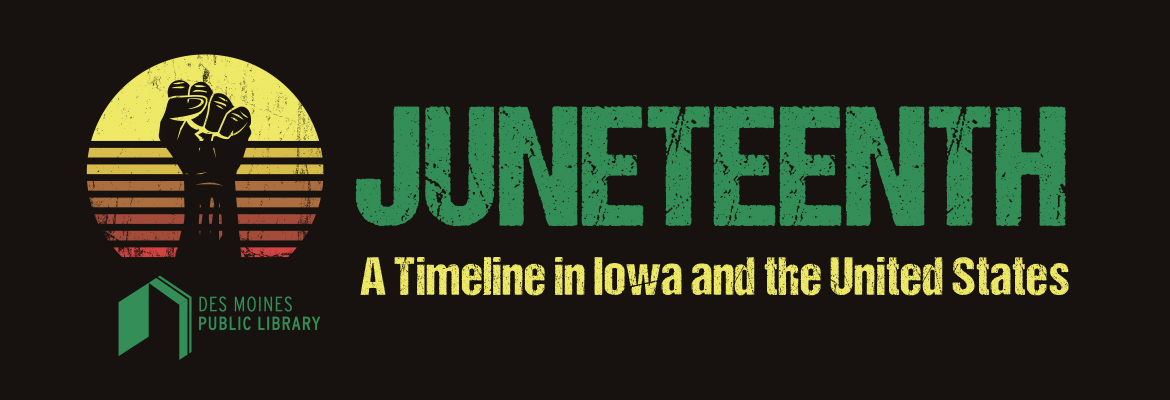
Last year, the City of Des Moines recognized Juneteenth, which takes place on June 19, as an official city holiday. The holiday commemorates the anniversary of a federal order freeing all enslaved people after the end of the Civil War. All city offices will be closed this year on Monday, June 20, in observance of Juneteenth.
Below is a brief timeline of events leading up to Juneteenth, as well as events that have happened since then that relate to the struggle for Black people to gain equality in the United States.
DMPL Juneteenth Events
- Celebrate Juneteenth with Iowa Juneteenth
Together with Dwana Bradley, General Chairperson of Iowa Juneteenth, we will explore the history of Juneteenth, how we celebrate Juneteenth here in Des Moines, and what is being planned for the future.- Wednesday, June 8 | 6:30 PM | South Side Library
- Thursday, June 9 | 6:30 PM | Forest Avenue Library
- Juneteenth Storytime with Iowa Juneteenth
We'll read a story about Juneteenth and then work on a craft.- Wednesday, June 8 | 10:00 AM | Forest Avenue Library
- Thursday, June 9 | 10:00 AM | South Side Library
- Juneteenth Scavenger Hunt
Find Juneteenth-related images around the library and win a prize. For ages 7+.- June 13-18 | South Side Library
- Juneteenth Drop-in Craft
Celebrate Juneteenth! Learn about the history of this important holiday and make a colorful whirligig spinning toy. All ages.- June 17-19 | Franklin Avenue Library
- June 17-19 | Franklin Avenue Library
*Registration required
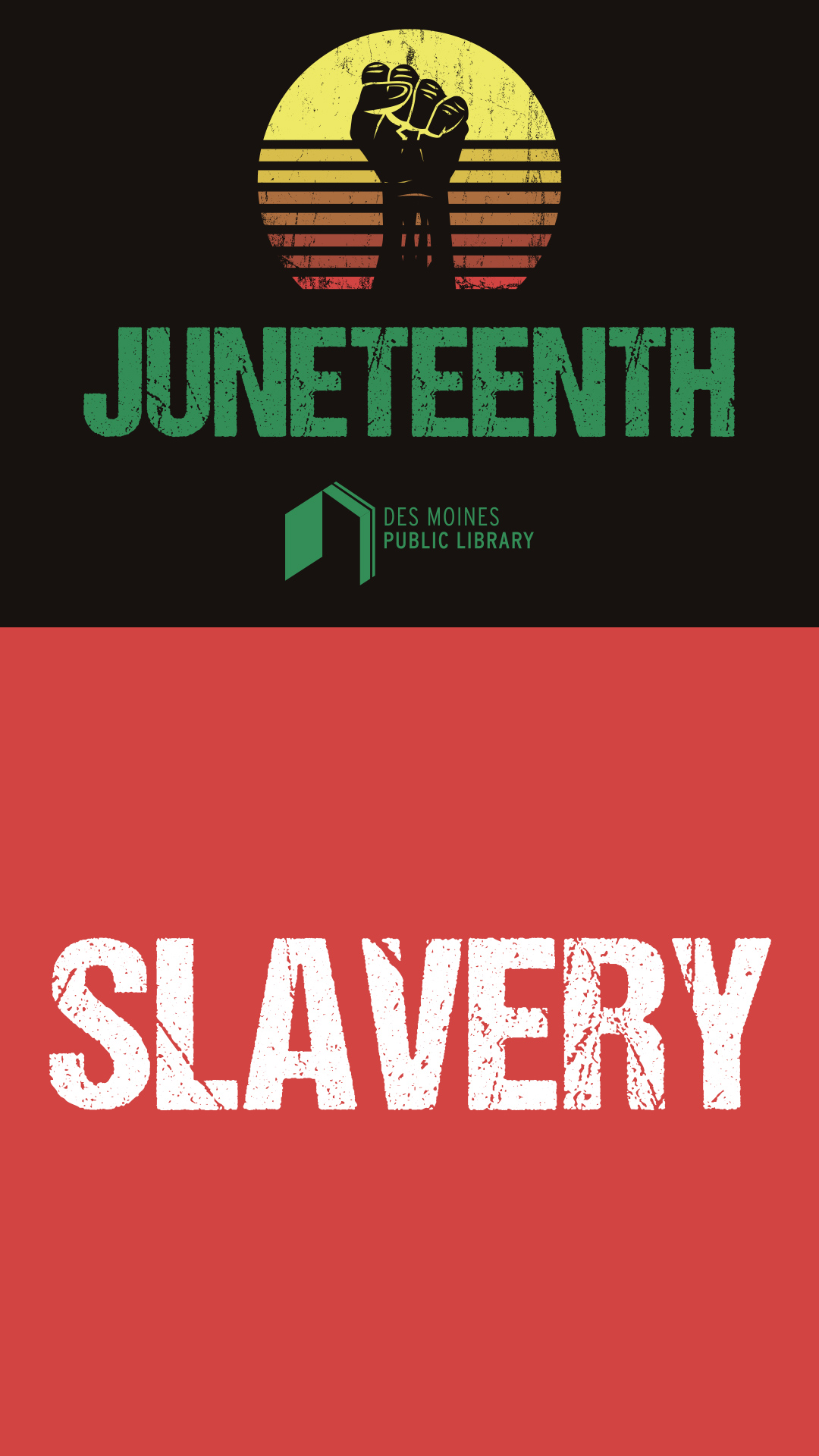
Slavery (1619-1865)
Africans are forcibly brought to the American colonies.
The United States officially bans the importation of slaves.
Iowa lawmakers pass Black Codes that prohibit Black people from voting, serving in the military, testifying in court against whites, and attending public schools in Iowa.
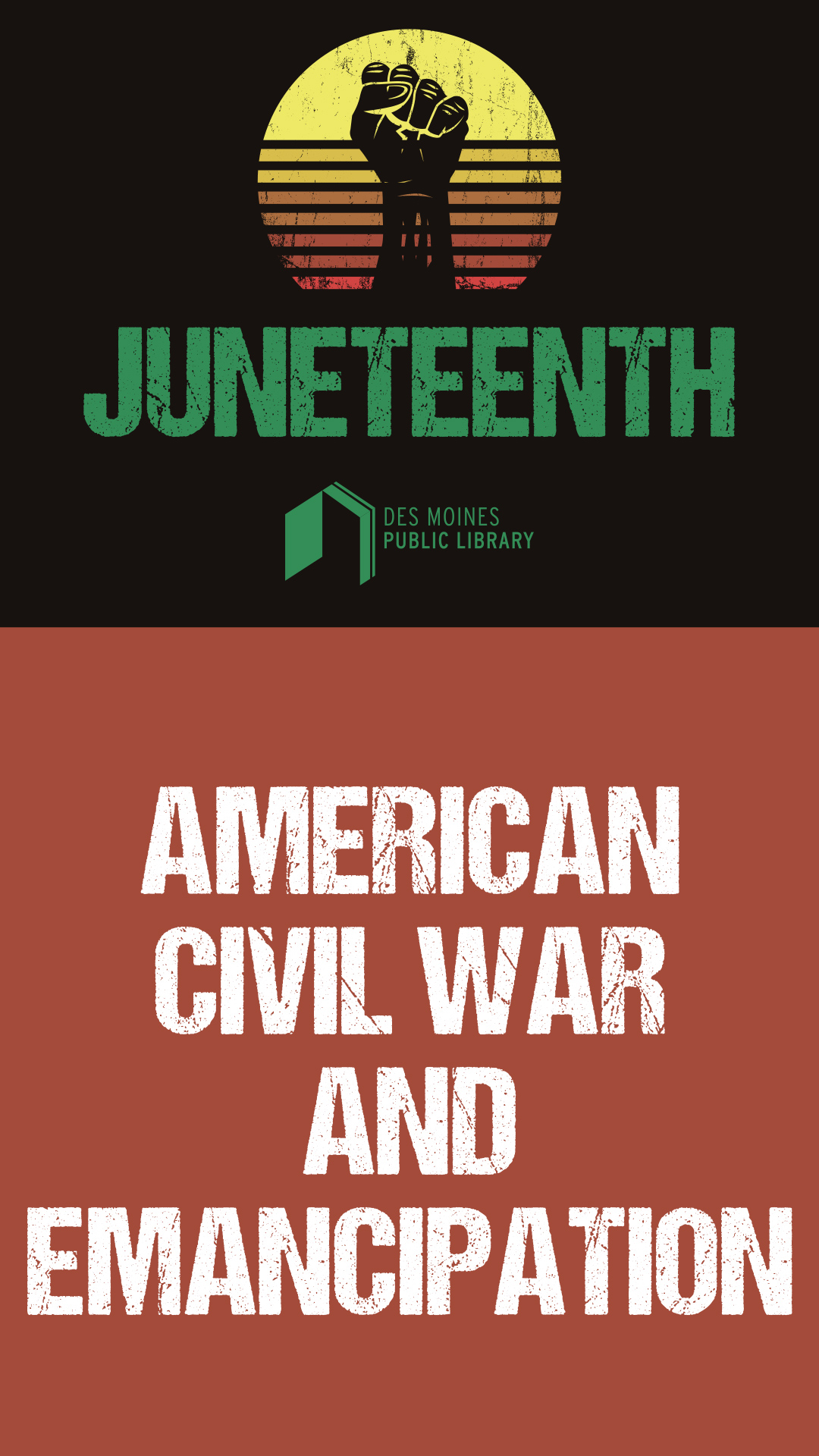
American Civil War and Emancipation (1861-1865)
President Lincoln issues the Emancipation Proclamation.
Confederate General Robert E. Lee surrenders to Union troops, ending the Civil War.
Union Army Major General Gordon Granger issues a federal order to free a group of enslaved people in Galveston, Texas – 2.5 years after the Emancipation Proclamation – and establishes the basis for the Juneteenth holiday.
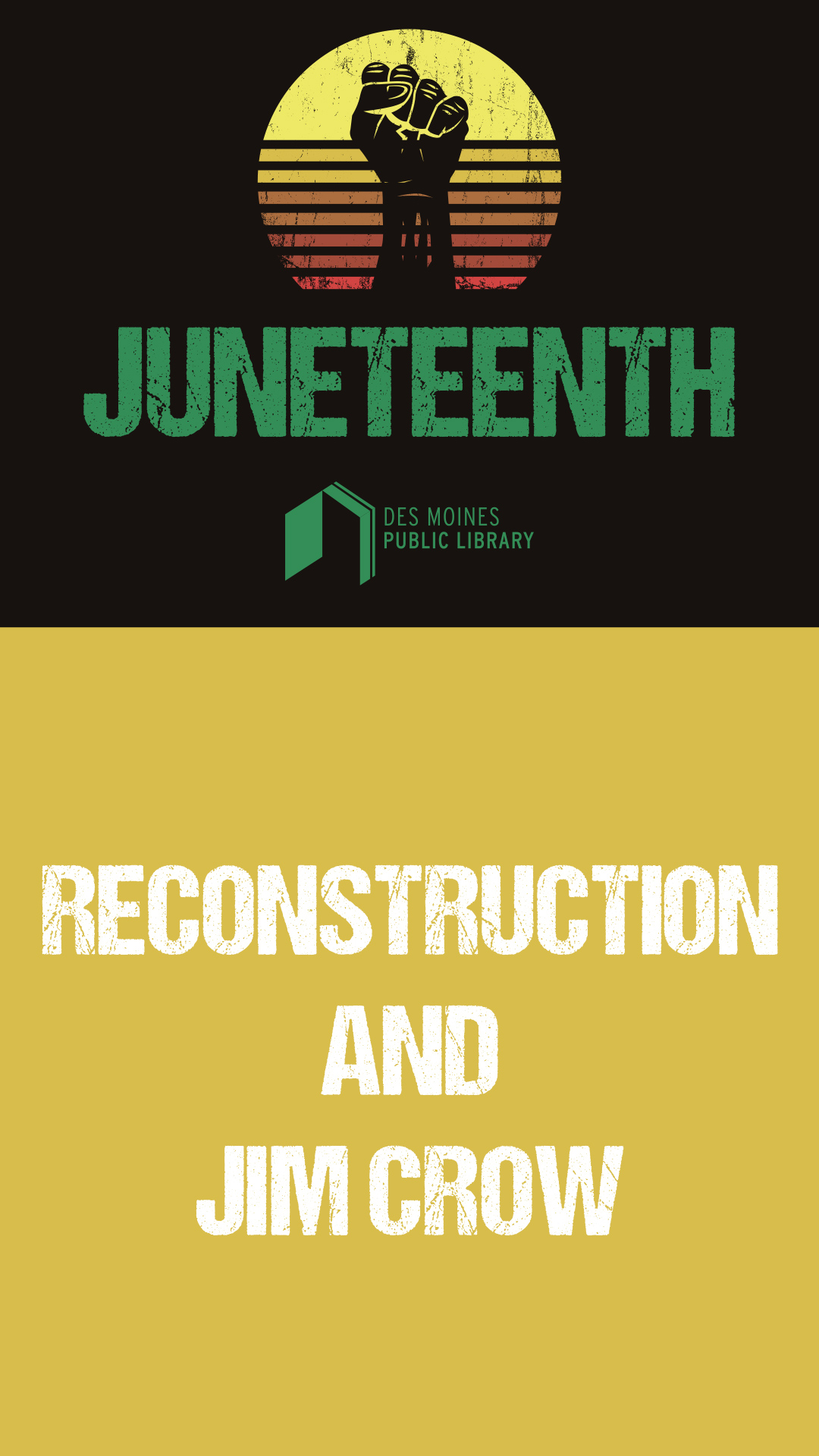
Reconstruction and Jim Crow (1865-1960s)
The 13th Amendment to the U.S. Constitution abolishes slavery. Reconstruction begins.
Iowa becomes the first state to desegregate public schools after the Iowa Supreme Court’s Clark v. The Board of Directors decision.
White lawmakers across the United States devise “Jim Crow” laws that restrict rights for Black Americans.
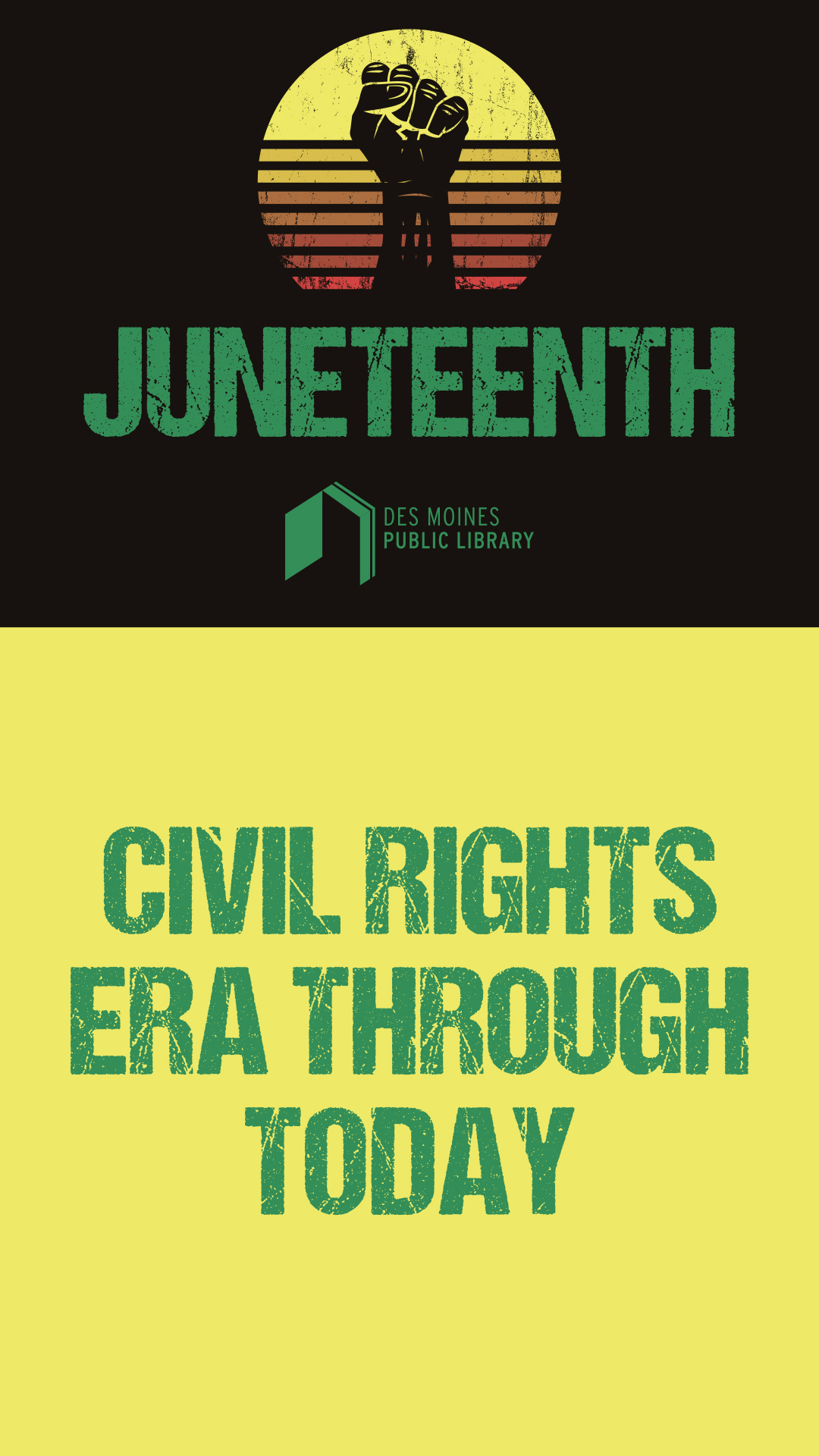
Civil Rights Era through Today (1960s-Present)
After being denied service at Katz Drug Store in Des Moines, Edna Griffin uses court cases, boycotts, and protests to initiate a movement for civil rights in Des Moines and Iowa.
U.S. Supreme Court ruling in Brown v. Board of Education ends segregation in public schools.
Black organizers across the country mobilize a movement for integration of public schools, desegregation of public accommodations and businesses, voting rights, and civil rights protections in areas that black people are systemically discriminated against.
The Federal Civil Rights Act bans segregation in public places and bans employment discrimination.
Iowa becomes the seventh state to designate Juneteenth as a day of recognition.
In its Shelby County v. Holder decision, the U.S. Supreme Court invalidates key parts of the Voting Rights Act of 1965, freeing states to change their election laws to enact new voting restrictions and leading to what critics call a “new Jim Crow” era.
Des Moines declares Juneteenth a paid holiday for all city staff, and city buildings and offices (except the library) will remain closed each year on June 19.
President Joseph Biden signs a bill making Juneteenth a federal holiday.